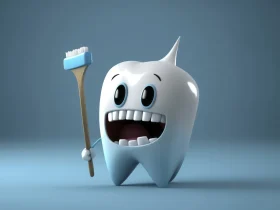Is being kind is convenient. To arrive at this conclusion is not the usual good purpose of the rhetoric of good feelings, but psychotherapists who, based on clinical research, show how kindness has its value in the context of human relationships and happiness.
Remembering that being kind is good for your health is not just a popular saying. In a conference held at the Centro Conscience of Milan, Professor Stefano Caracciolo, full professor of Clinical Psychology at the University of Ferrara, illustrated, with lots of practical examples, how kindness has therapeutic power in interpersonal relationships.
“Kindness – explained prof. Caracciolo – is a first step in the relationship with the other, usually a stranger. As we continue to get to know one person, we can experience the other’s reaction (and the environment around us) to kindness.
Thanks to kindness, sympathies are earned, a positive and serene atmosphere is created around. The real ‘convenience’ of kindness, however, lies in being kind. Kindness, in fact, gives meaning and value to our existence, makes us forget the daily troubles and feel good about ourselves.
Of course, it must be remembered that being authentic, being sincere, can sometimes mean saying things in a way that is not at all kind or at least that is the risk. The effort should (conditionally be used) be to find a non-aggressive way of saying things, even when anger is about to take over.
The power of kindness
We found Happiness.com already shared a great post about the power of kindness.
According to the clinical psychologist, kindness calms aggression, and in case of heated arguments, it calms anger. It is precisely in the relationship with the other that we can discover some important elements of kindness. Of ourselves and others.
“When a person has no kindness in his soul – recalls Prof. Caracciolo – situations quickly arise in which he puts down his mask and proves vulgar, arrogant, brutal. Kindness has a relational dimension, based on respect and dignity of the other, and it becomes all the more true when, on the one hand, it belongs to a person who interacts following non-standard models. On the other, it is an element that comes into play in a relationship, constituting an added value. ”
Psychotherapist Piero Ferrucci shows how kindness can reveal a disruptive power, especially in today’s era. Relationships between human beings are less and less authentic and more and more formal.
Genuine kindness Vs false kindness
There is an authentic kindness and a false kindness: if we were to define them, the former is disinterested while the false one has an interest of its own, which can (also) be legitimate and desirable.
“An authentically kind person does not use kindness with a goal – reiterates the psychotherapist Ferrucci – but as a value for its own sake. If you want it becomes almost selfish: I’m kind because I’m happy to be, I like to be. I like it less when I realize that everyone else is bullying and maybe I spend hours at the supermarket checkout because I let everyone through. At this point, kindness ends up being tempered because an attitude of opposite sign emerges, aggressive and prevaricating in the name of reciprocity. ”
So let’s not expect the world always to be characterized by kindness. But this attitude must start with us: at least we try to be kind to get better ourselves, and the others with us.








Leave a Reply